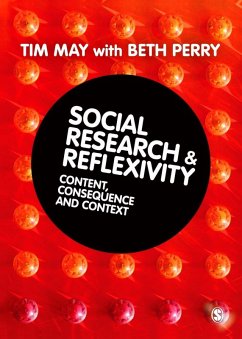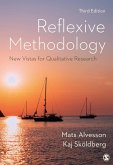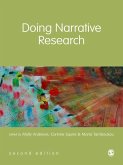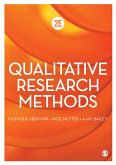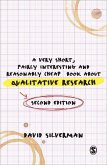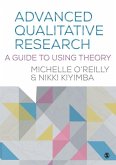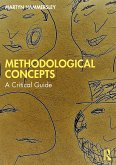What are the critical gaps in thinking about reflexivity and social research?
How is reflexive practice shaped by the contexts and cultures in which researchers work?
How might research practice respond to twin demands of excellence and relevance in the knowledge-based economy?
Thinking reflexively about the inter-relationships between social research and societal practices is all the more important in the so-called knowledge economy.
Developing reflexive practices in social research is not achieved through applying a method. Where and how researchers work is fundamental in shaping the capacities and capabilities to produce research as content and context lie in a dynamic interaction.
This book not only provides a history of reflexive thought, but its consequences for the practice of social research and an understanding of the contexts in which it is produced.
It provides critical insights into the implications of reflexivity through a discussion of positioning, belonging and degrees of epistemic permeability in disciplines. It is also highly innovative in its suggestions for ways forward in research practice through the introduction of active intermediaries.
Overall, the book offers an exciting new position on reflexive research that will generate much debate through its successful achievement of two difficult feats: providing essential reading for orientations on reflexivity and social research in the twenty-first century and making a landmark contribution to thinking and practice in the field.
Social Research and Reflexivity is suitable for advanced undergraduates, postgraduates and social researchers in general across a number of disciplines including geography, social research, management and organizations; economics, urban studies, sociology, social policy, anthropology and politics, as well as science and technology studies.
How is reflexive practice shaped by the contexts and cultures in which researchers work?
How might research practice respond to twin demands of excellence and relevance in the knowledge-based economy?
Thinking reflexively about the inter-relationships between social research and societal practices is all the more important in the so-called knowledge economy.
Developing reflexive practices in social research is not achieved through applying a method. Where and how researchers work is fundamental in shaping the capacities and capabilities to produce research as content and context lie in a dynamic interaction.
This book not only provides a history of reflexive thought, but its consequences for the practice of social research and an understanding of the contexts in which it is produced.
It provides critical insights into the implications of reflexivity through a discussion of positioning, belonging and degrees of epistemic permeability in disciplines. It is also highly innovative in its suggestions for ways forward in research practice through the introduction of active intermediaries.
Overall, the book offers an exciting new position on reflexive research that will generate much debate through its successful achievement of two difficult feats: providing essential reading for orientations on reflexivity and social research in the twenty-first century and making a landmark contribution to thinking and practice in the field.
Social Research and Reflexivity is suitable for advanced undergraduates, postgraduates and social researchers in general across a number of disciplines including geography, social research, management and organizations; economics, urban studies, sociology, social policy, anthropology and politics, as well as science and technology studies.
Dieser Download kann aus rechtlichen Gründen nur mit Rechnungsadresse in A, D ausgeliefert werden.

